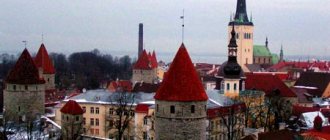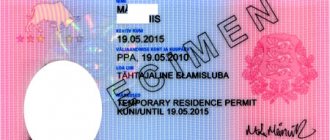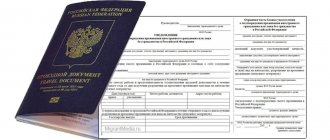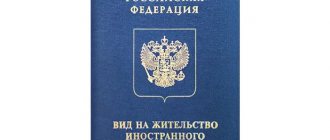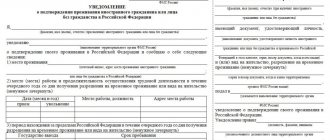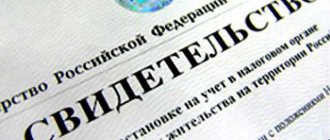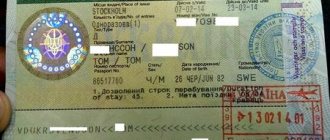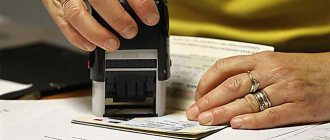Advantages of Estonia for life
The main advantages of Estonia for living can be described as follows:
- The European country of Estonia is a country of the European Union, which provides the possibility of legal residence in all EU countries.
- Good ecology As already mentioned, the air in Estonia is considered very clean, which has a beneficial effect on the country's environmental performance.
- Beautiful nature Lakes, forests and numerous parks combined with stunning architecture make Estonia a beautiful country in which to live, work and relax.
- Relatively low cost of living Prices in Estonia are relatively low, although the country offers the most favorable living conditions of all the Baltic countries.
- Developed information technology (IT) sector Estonia is a country of IT startups, where many entrepreneurs run and develop their businesses.
- Income tax If the company does not distribute profits, the income tax rate is 0%.
- Entry into other countries A residence permit in Estonia (like citizenship) gives the right to simplified or visa-free entry into more than 100 countries.
Types of residence permits
According to Estonian laws, there are two temporary residence permits:
- Fixed – valid for up to 5 years.
- Long-term – gives the right to live in the country indefinitely.
The responsibilities and rights for owners of both types of residence permits will be the same, the only difference is the validity period.
Renewal of a residence permit is allowed on the territory of the state. It is advisable to do this in advance - approximately 3 months before the final date of validity of the old type.
What should you consider before obtaining a residence permit in Estonia?
In addition to the advantages of living in Estonia, you need to consider the following points before applying for a residence permit in Estonia:
- Climate In Estonia, cloudy weather is often accompanied by prolonged rain. Lack of sunshine is often the reason why Estonians fly to warm countries every year for vacation.
- Estonian language To find a job in Estonia and communicate in your native language with residents of the state, you need to learn the Estonian language, which is quite difficult to learn. However, with a little perseverance and hard work, this minus can not be considered as a minus, since knowledge of a new foreign language will always be a plus.
Residence permit in Estonia for moving in with a spouse
In the Republic of Estonia, there are several grounds for obtaining a temporary residence permit: for settling with a spouse, for settling a minor child with a parent, for settling an adult child with a parent, for settling a ward with a guardian, for settling a parent/grandparent with a child /granddaughter/grandson, for training, for work, for entrepreneurial activity, for participation in criminal proceedings. Also, until July 1, 2012, it was possible to obtain a residence permit in Estonia based on the presence of any sufficient legal income, and this method was the most widely popular, since it was one of the most accessible opportunities to become a legal resident of the European Union, simply having income from rent, freelance activities or business in another country, equal to 18 times the Estonian gross monthly salary in aggregate for 6 months. However, due to the discovery of serious abuses and fraud in obtaining such a residence permit, this method was closed in 2012, although for those who received an Estonian residence permit on the basis of sufficient legal income, the opportunity to renew it was previously preserved.
Currently, one of the most common is a temporary residence permit in Estonia to join a spouse. This opportunity is used both by those who married an Estonian citizen living on the territory of the Republic of Estonia, and by those married couples (mainly from Russia, Ukraine and Belarus) in which one party received Estonian citizenship through ancestors. In both cases, the condition for obtaining a residence permit is the family’s intention to live together in Estonia, i.e. It will not be possible to obtain a residence permit and at the same time continue to live permanently in another country.
According to Art. 137 (1) of the Aliens Act of the Republic of Estonia, “a temporary residence permit may be issued to a foreigner to settle with a spouse residing in Estonia who is a citizen of Estonia or an Estonian by nationality, or from a spouse residing in Estonia on the basis of a residence permit who is a foreigner.”
At the same time, Art. 138 of the same law specifies that “(1) A residence permit for settling with a spouse may be issued if there are close economic ties, psychological interdependence and strong family relationships between the spouses, and the marriage is not fictitious. (2) A marriage is fictitious if it is concluded for the purpose of obtaining a residence permit and there is no real family life between the persons.”
Although it is usually necessary to submit documents to a foreign representation of Estonia to obtain a residence permit, when obtaining a residence permit to settle with a spouse, it is possible, as an exception, to submit documents at a service point of the Police and Border Guard Board in Estonia [UPD: according to the new version of the Aliens Act , it is now possible to submit an application for a residence permit while on the territory of Estonia on other grounds, provided that the applicant is in Estonia legally]. This means that you can come to Estonia on a visitor or tourist visa and apply for a residence permit on the spot. This option, from my point of view, is much preferable, since, unlike applying for an Estonian passport, in this case it is necessary to fill out many forms and submit a number of documents, and employees of Estonian consulates abroad will not be able (and will not want to, since this is not is within their competence) to provide you with qualified assistance - their responsibilities are only to accept a package of documents from you and send them for consideration to Estonia. But at a service point in Estonia they will explain to you in detail what and how to fill out, and they will do it in Russian.
So, what do we need to obtain a residence permit in Estonia on this basis? First of all, we go to the website of the Police and Border Guard Board and look at the list of documents that we need to collect.
You will have to fill out several application forms, which can be downloaded from the same page of the site. You can print the forms and fill them out manually, or you can fill them out directly on your computer in PDF form.
( UPD : The list of documents was updated on February 28, 2017 in accordance with the new requirements presented on the Department’s website)
1) Application for a temporary residence permit; invitation of spouse; information about close relatives and family members.
Your names (the applicant and the spouse) must be written in Latin letters in the application forms (as in the Estonian document of an Estonian citizen, and as in the foreign passport of the applicant). The names of relatives and family members can be written in Cyrillic. Contact details are those by which you can be found, so, for example, if you currently live in Russia, then write your Russian address and telephone number.
Separately, it is worth mentioning the information of the inviting person. If this person lives in Estonia, then, of course, the Estonian address and housing parameters are indicated. If we are talking about a married couple who lives in another country and plans to move to Estonia together, then the address and parameters of the housing where you are registered in your country of residence are indicated. In addition, you should not be confused by the note at the end of this form: “I confirm that I live in the Republic of Estonia and the applicant will live/is living in Estonia. I confirm that all data is correct. I know that providing false data is punishable.” Even if you do not live in Estonia, you can safely sign this form, since, according to Art. 137 (2) of the Aliens Act of the Republic of Estonia, “in relation to the spouse who is an Estonian citizen, from whom a residence permit is requested for settlement, the requirement of previous residence in Estonia does not apply if the family settles together for residence in Estonia".
Looking ahead, I will say that when submitting documents in Estonia, the employee at the service point will most likely fill out new application forms with her own hand, rewriting the information that you indicate in the forms that you bring with you, as well as clarifying some points. It’s just that if you already have completed forms in your hands, it will be much easier for her to do this than to write everything from your words.
2) an identification document - usually a foreign passport; You can immediately attach a photocopy, although it can also be made by the employees of the consulate or service point in Estonia.
3) 1 color photograph measuring 40x50mm. If you submit documents at a service point in Estonia, you can take a photo right on the spot for free.
4) the state fee can be paid directly on the spot (currently it is 31 € when submitting documents in Estonia and 50 € when submitting documents at the consulate). Please note that at a service point in Estonia it is not possible to make payments with a foreign debit card (this is written on the website of the Police and Border Guard Board, but I suspect that a foreign credit card will not work either).
5) marriage certificate. For certificates issued in Russia and a number of other countries, an apostille is not required; If the certificate is in Russian or English, there is no need to translate it either. If the marriage took place in Estonia, it is not necessary to provide the corresponding extract from the register.
6) documents confirming the legal income of the spouses. The main thing is that the amount of income is no less than that indicated in the corresponding table here (see the table above which it is written: “In the case of an application for a temporary residence permit for study or a temporary residence permit for settling with a spouse), income The families of the inviting person and the applicant must be as follows"). You can provide information about the income of both spouses and either one of them. If the income of one spouse is sufficient, information about the income of the second spouse may not be provided. Keep in mind that you will need to convince the Estonian authorities that your income will continue if you both live in Estonia. Therefore, if, for example, you are a married couple who moves to Estonia from Russia, where one of you works as a cashier in a store, and the other works as a junior researcher at a research institute, then 2-NDFL certificates for the past six months will most likely not be enough, because obviously you won't be able to keep this job after you move. But an extract from a business bank account is quite suitable if you can prove that your business will continue to generate income, even if you live in Estonia. I think that having an impressive amount on deposit can also serve as proof of your wealth, but this point should be clarified in advance.
7) health insurance contract. Special insurance is required for a residence permit; it can only be obtained in Estonia. The most popular insurance company is ERGO; they also offer the most reasonable prices. Choose an office that is suitable for your location, go there and tell the agent that you need to get insurance to obtain a residence permit. You will receive an application in which you will need to provide some information about yourself and your health - what diseases you have had, what chronic diseases you have, what medications you take, they may ask which doctor you previously saw in your country (name, surname, place of work) . Keep in mind that the more illnesses you list, the more expensive the insurance will end up being, so don’t overdo it. The policy is not issued immediately , it can take up to two weeks, so calculate the time of your stay in Estonia taking into account this waiting time. During this time, they may call you to clarify some points regarding your health, so try to stay in touch so that there are no additional delays. A few days later you will be informed when and where you can pick up the completed policy. The price of annual insurance, provided there are no serious illnesses, usually ranges from 450 to 650 €. One year's insurance is sufficient, even if you expect to obtain a longer residence permit (according to the Aliens Act, if the marriage lasts less than three years, a temporary residence permit is issued for a period of no more than one year, but if the marriage lasts more than three years , then they can give a residence permit for up to three years).
If you submit documents at the Russian (or any other) consulate, you will not have the opportunity to provide an insurance contract, so you will be required to have a written undertaking to enter into the necessary insurance contract no later than 2 months after arriving for settlement in Estonia, as well as a policy which covers the costs of treatment until the conclusion of a contract that meets the requirements (for example, a travel insurance contract). In this case, you may not need to then resort to the services of an insurance company if you manage to get a job within 2 months after moving - then the employer will pay social tax for you, and you will legally be a person insured by compulsory hospital insurance (Haigekassa).
 Since the law requires that the family have a registered place of residence and actual premises for living, it is necessary to provide evidence of the existence of such premises. This could be a certificate of ownership, a lease agreement, or simply the owner’s consent for you to live in his apartment (there is no need to have these documents certified anywhere). In addition, within one month of receiving your residence permit, you will be required to register in the Estonian Population Register, otherwise your residence permit may be invalidated. However, the law does not require that the place of registration coincide with the place of actual residence.
Since the law requires that the family have a registered place of residence and actual premises for living, it is necessary to provide evidence of the existence of such premises. This could be a certificate of ownership, a lease agreement, or simply the owner’s consent for you to live in his apartment (there is no need to have these documents certified anywhere). In addition, within one month of receiving your residence permit, you will be required to register in the Estonian Population Register, otherwise your residence permit may be invalidated. However, the law does not require that the place of registration coincide with the place of actual residence.
So, all the documents are ready, now you need to submit your application. If you are in Russia and decide to apply in Moscow, the procedure is generally the same as when applying for an Estonian passport. If, following my recommendation, you decide to submit documents in Estonia, and you already have a Schengen visa, book an appointment at a service point that suits you (you need to select). In Tallinn, the best option would be the point at P. Pinna - it is spacious, modern and there are usually almost no queues.
Print out the reservation form and at the appointed time come with it to the address P. Pinna, 4. It’s better to come 10-15 minutes in advance, and if you don’t have a photograph, then budget about the same amount for taking photographs. Both spouses must approach together. In principle, you can come up without a reservation, but in this case you may have to wait a little in line (especially if you choose another service point, for example, on Syle Street you can wait a whole hour).
If everything is in order, accepting the documents will take about 20 minutes, after which you will be given a receipt confirming the acceptance of the documents (of course, they will not take your passport). After this, a waiting period will begin for you, which can last up to 2 months (if you are submitting documents outside of Estonia, it may be longer). You will be notified of the decision by email and by paper letter to the post office. If your application is approved, the letter will indicate the date from which you can obtain a residence permit card at the service point (or at the consulate). It must be collected within 6 months.
Along with the card, you will be given an envelope with PIN and PUK codes, with which you can authorize on the Internet and use the card for a digital signature (for example, when logging into online banking, a government services portal, etc.), as well as a memo using the card.
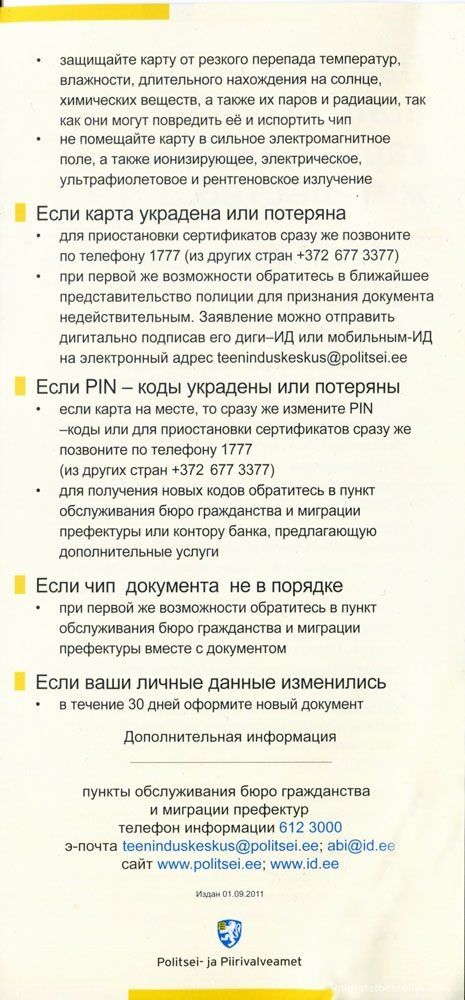
Depending on the period for which you are issued a residence permit, after some time you will have to renew it. Be sure to submit your renewal documents no later than two months before your current residence permit expires. The package of documents required for renewal will be the same, with the exception of the autobiography. Also, if a residence permit is issued for more than one year, do not forget to subsequently renew your health insurance yourself, since, according to the law, if “a foreigner does not have an insurance contract that would cover the payment of treatment costs caused by his illness or injury during the validity of the residence permit", the temporary residence permit may be declared invalid.
Grounds for obtaining a residence permit in Estonia
Most often, those looking for a residence permit in Estonia are entrepreneurs or employees who want to create a business or get a job in Estonia.
So, how do they get a residence permit in Estonia? To answer this question, it is necessary to consider the main existing grounds for obtaining a residence permit in Estonia.
- Employment;
- Studies;
- Family reunification;
- Entrepreneurship.
It is worth immediately noting here that in Estonia there is an immigration quota that is equal to 0.1% of the permanent population of Estonia. This means that, as a general rule, a limited number of applicants can obtain a residence permit.
However, some categories are not subject to the immigration quota restriction, namely:
- Persons who are citizens of the United States or Japan;
- Persons who hold positions in a company specializing in information and communication technologies;
- Persons who apply for a residence permit to conduct scientific or research work in Estonia;
- Persons who come to Estonia as employees of a start-up company or for business related to a start-up;
- Persons who are large investors;
- Top specialists of companies;
- Persons wishing to obtain a residence permit on the basis of “family reunification”;
- Persons coming to Estonia to study.
Taking into account how highly developed the IT sector is in Estonia, the most common reasons for obtaining a residence permit in Estonia are employment and entrepreneurship. In other words, in order to move to Estonia, you must either register a company in Estonia or move there on the basis of employment.
In Estonia, there are 3 main categories that can obtain a residence permit on these grounds:
- Member of the company's board;
- Top specialist of the company;
- Startup project.
How difficult is it for a Russian citizen to obtain an Estonian residence permit?
In connection with the strict requirements for an applicant for a residence permit, a logical question arises about whether it is difficult for a Russian to obtain the status of a temporary resident of Estonia.
As already mentioned, almost half of the Russian-speaking population of the Republic of Estonia does not have citizenship of this state. Conventionally, Russians who have the status of temporary or permanent residents of the country can be divided into two categories.
The first includes ethnic Russians who have lived on Estonian territory since the times of the Soviet Union and became residents of Estonia after the declaration of independence simply automatically. The second category includes relatives who came to them from Russia or other CIS countries, as well as Russian labor migrants who have been coming to Estonia en masse over the past years. If the first category had no problems at all with obtaining residency, then representatives of, for example, labor migrants can obtain a residence permit in Estonia if certain requirements are met (they will be discussed below) and if the application fits into the annual quota of the Estonian government , which we have already talked about. Information about the quota is published before the start of the next budget year, so those Russians who will apply for a residence permit in the first half of the year are more likely to receive Estonian resident status . If a Russian meets all the requirements, but does not fit into the annual quota parameter, then he will have to wait until the next budget year. When moving to relatives, this is only a relative problem, but when finding employment, failure to meet the quota parameters will most likely lead to the vacancy being filled by another applicant.
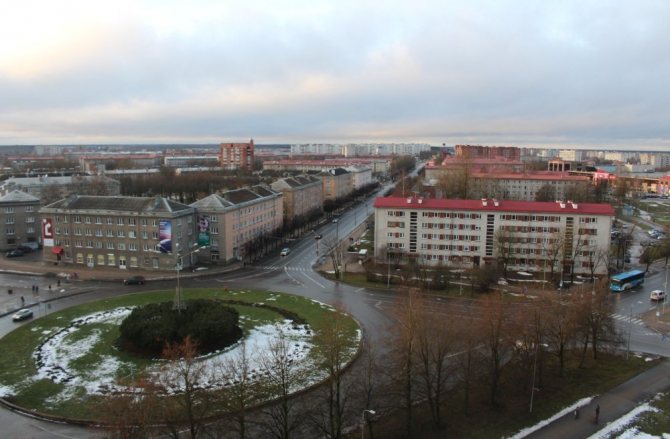
Most Russians live in North-East Estonia, the administrative center of which is Narva
Requirements for obtaining a residence permit in Estonia
The requirements for obtaining a residence permit in Estonia vary depending on the chosen basis. Thus, in order to obtain a residence permit on the basis of studying in Estonia, you must provide documents confirming admission to an Estonian university; if on the basis of family reunification - provide documents on family members and their connections with the applicant (birth certificate; marriage certificate, etc.), etc.
If you have questions about the requirements for a specific foundation, write to our specialists.
If we talk about the basis “employment” and “entrepreneurship”, there are requirements here. The most convenient way to obtain a residence permit in Estonia among the grounds of “employment” and “entrepreneurship” is to obtain a residence permit for a top specialist. Why is this the most convenient way? Firstly, there is no quota for this reason (limit on the number of applicants per year).
Interesting: For comparison, a quota has been established for members of the board of a company, and in order to obtain a residence permit for a member of the board of a company, it is necessary to be among a limited number of applicants. Thus, the quota for 2021 has already been exhausted; you can only apply for 2021 and subsequent years.
It turns out that a top specialist can apply for a residence permit regardless of the total number of applicants.
In order for a top specialist to qualify for a residence permit, he must meet a number of conditions:
- The company has been in existence for more than a year;
- The annual turnover of the company is at least 200,000 euros per year or the authorized capital of the company is at least 65,000 euros;
- The salary is at least 2,800 euros per month.
If the above requirements are met, a top specialist can apply for a residence permit in Estonia.
Read more about how to register a company in Estonia.
Basic package of documents
When requesting a residence permit, you must provide the following to the Estonian Immigration Service:
- a correctly completed application form;
- detailed autobiography;
- international passport;
- certificate of good conduct;
- documentary evidence of the reason for requesting a residence permit (for example, an employment contract with an Estonian company);
- European type health insurance;
- a document confirming permanent legal income;
- two color photographs (passport format);
- receipts for payment of all administrative fees and duties. The cost of a residence permit depends on the reason for its request and ranges from 65 to 150 euros.
The application and package of documents must be submitted to the branch of the special Bureau under the Ministry of Internal Affairs of the republic, which deals with issues of migration and issuance of citizenship.
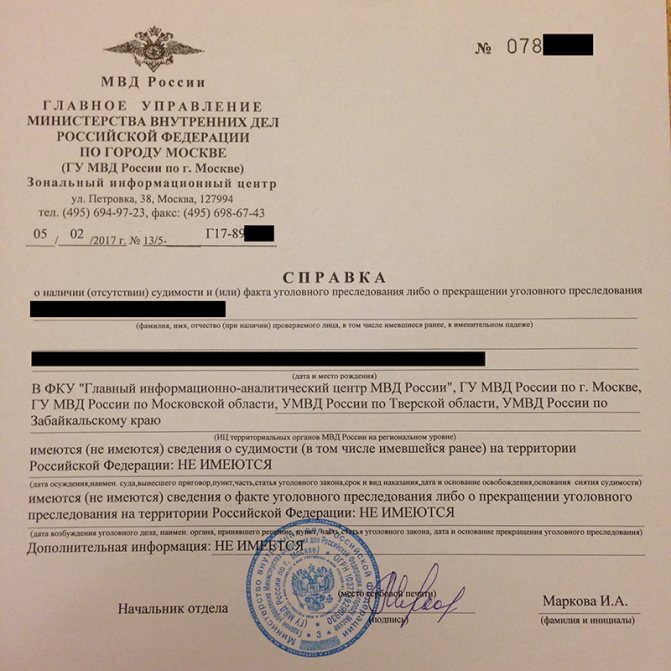
The basic package of documents must include a certificate of no criminal record
The procedure for obtaining a residence permit in Estonia
- The procedure for obtaining a residence permit in Estonia begins with collecting the necessary documents, which differs slightly depending on the chosen basis (check with our specialists);
- After all the necessary documents have been prepared, it is necessary to provide evidence of compliance with all the requirements for obtaining a residence permit on a specific basis;
- Next, an application is made for obtaining a residence permit in Estonia, which is accepted for consideration by the authorized body;
- Provided that all requirements are met, after the period for consideration of the application has expired (on average it takes about 2 months), a positive decision will be made to issue a Residence Permit Card to the applicant.
Who can count on permanent residence in Estonia
A temporary residence permit in Estonia is initially issued for a year, and then it can be extended. An immediate extension of up to five years is possible. After five years, you can apply for permanent residence.
The conditions that a candidate for permanent residence must meet will be as follows:
- over the past five years, the applicant has not left the republic for six months in a row or for 10 months in total;
- has permanent housing in Estonia (owning or renting);
- there are no facts of violation of the country’s immigration rules;
- there is a permanent and source of income in Estonia.
Foreign investors who have invested at least a million euros in investment projects in Estonia will be able to quickly become long-term residents of Estonia. Foreign spouses of Estonians can also immediately obtain this status.
The most common method of obtaining an Estonian resident card is for the candidate to comply with the required deadlines for obtaining a residence permit and proceed to the next stage of naturalization. In second place is investment activity. The third most common way would be marriage to a citizen of this country.
The status of a permanent resident of Estonia can be assigned by decision of the country's government to foreigners who are of particular value to the republic: famous scientists, politicians, specialists of a very high level of qualification in any sector of the economy, and so on.
How can we help?
GFLO Consultancy provides full support for obtaining a residence permit in Estonia on any basis you choose. We will help:
- Find all the answers to questions during the consultation;
- Collect documents;
- Draw up a business plan;
- Prepare and fill out the necessary forms;
- Answer questions from migration authorities;
- Accompany you through all stages of obtaining a residence permit;
- Help with the renewal of residence permit;
- Provide assistance in finding housing.
If you need our help, GFLO Consultancy will be happy to provide it to you. Write to us at any time convenient for you!
